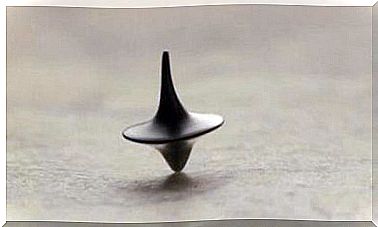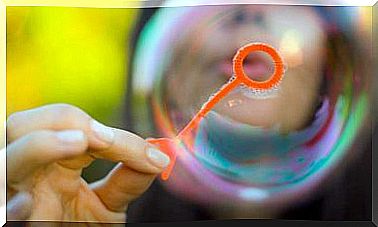The Experiences Children Have After Their Parents’ Divorce
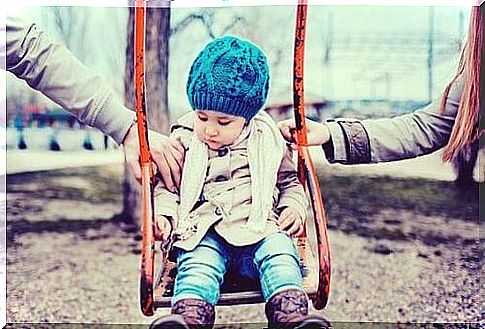
Many parents think that they are the only ones directly affected by their separation. However, this is not true when children are involved. Many people ignore the fact that young children suffer from divorce, quarrels, misunderstandings, and everything that comes with a separation. Many children don’t know how to deal with the fact that their parents are divorced. It is normal for them to have a lot of doubts and they need someone to clear them up with patience and understanding.
It is no coincidence that many children with divorced parents have problems at school. Some people toy with the idea of using drugs and alcohol at a very young age, or they stop talking to their families. Children suffer as much, or even more, from standing by and watching a relationship die as one of its first examples.
60% of children of divorced parents need some form of psychological treatment.
The consequences of a divorce depend on age
A breakup does not have the same effect on a six year old as it does on one who is two. Circumstances change, and the more mature the child, the greater the difference in impact. That is why the age of the child decides how much or how little it will be affected by the separation of the parents. One thing that is important is that these childhood experiences will have an impact later in life.
A child under the age of two does not understand what a divorce is or what the consequences are. Nevertheless, they know that something is wrong, or at least that something is different. They perceive the parents’ emotional changes and whether they are absent or not. This absence often translates into feelings of abandonment. The atmosphere that surrounds them does not give them the security they need. And that can have major psychological consequences.
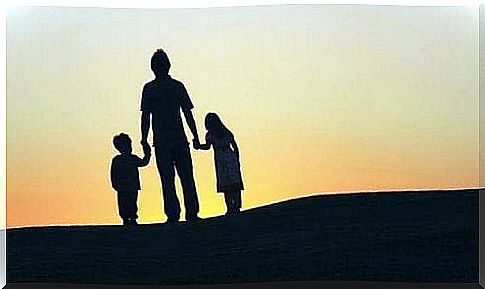
Children between the ages of two and three are in a delicate phase. You are in the middle of their development. If the breakup affects the child badly, the consequence may be a developmental delay. There could be a delay in certain motor skills development, language development, or toilet training problems. At this age, children understand what a divorce means just as they know they want their parents to stay together. This idea turns into a dream for some children.
If the child is between three and five years old, they already know, or at least have a feeling, what a divorce is and what it means. As a result, you will be asking a lot of questions. The problem here is that when they feverish for answers, they eventually end up lying. These are answers that don’t really make sense and add to the feeling that the world has become an unsafe place. Amidst the fears that can escalate is the fear of being alone. Or the fear that a parent will leave the child. Because of this, some children become possessive with one or both parents.
Children may respond with anger, sadness, or anger at the possibility of divorce. This makes us understand that they are also affected by it.
Children between the ages of six and twelve are much more empathetic and can even introduce themselves correctly in their parents’ shoes. So it’s not uncommon for them to keep hoping that they’ll stick together. Adults do this all the time, so why not a child too?
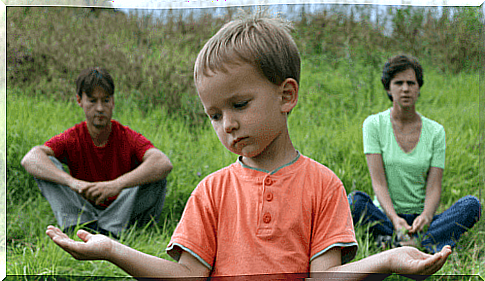
Nonetheless, at this age we need to be careful because this type of disappointment (understanding that their parents will not stay together) can have a significant emotional impact. Realizing that your dream is not going to come true can have a bigger impact than the breakup itself. Thinking that a situation is temporary is very different from thinking that it is permanent. The changes that happen could be the same, but the emotional impact is different.
With this in mind, we need to remember that a child of this age, no matter how mature they are, is far from the end of their emotional development. There are processes it won’t understand, like two people who love each other choosing not to be together. This feeling of living in a world governed by complex rules that they do not understand can be overwhelming for the child.
At this age, children can develop “confrontation strategies”. They could “unlearn” emotional skills that they had already acquired. Or they put on a brave face while hiding deep fear and pain. In the case of the latter, they do not learn to express their feelings, which will affect them in adulthood.
Divorced parents and their communication with their children
As we’ve seen, breakups have different effects depending on the age of the child. Therefore, even when we feel broken and unwilling to listen to children’s doubts and concerns, it is important. We need to communicate with them and let them know that no matter what changes take place, we love them and they can count on us.
Note that children, on the other hand, sometimes blame themselves for the breakup. It is possible that they think that it is their behavior that led the parents to divorce. Parents need to talk to their children and make them understand that they are not responsible or guilty for what happened.
For this reason it is important to be transparent with the children about what is happening. There’s no good hiding what’s happening because we think they won’t understand the situation. Children understand a lot more than we (parents) think, and they need to know what is happening. Hence, we need to be clear, direct, and honest, and speak to them in an age-appropriate manner so that they feel loved.
Many divorced parents try to turn the child against the other parent, which is very painful and harmful.
Many couples just focus on themselves and forget about the feelings their children may be experiencing. This makes the children feel rejected and ignored. Nonetheless, we cannot avoid talking to them about something so important. Because, even if we don’t see it, they can develop a wound that will only get worse over the years if left unattended.



